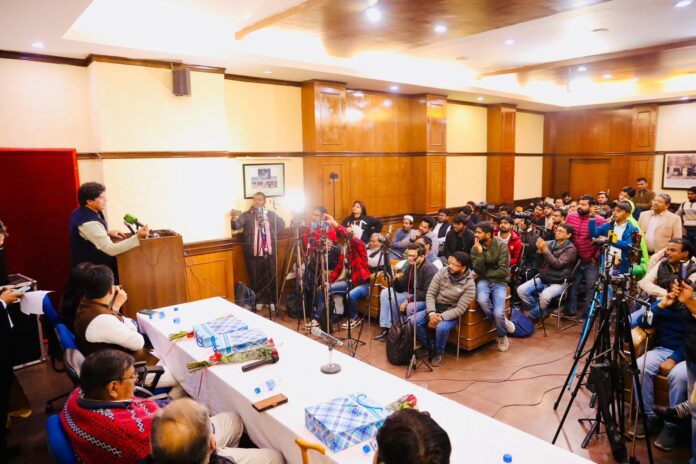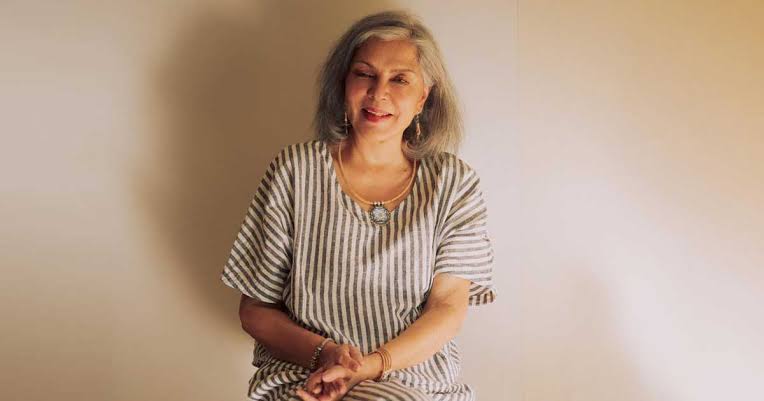NEW DELHI :

Renowned media house Millat Times celebrated its 9th anniversary on January 18 at the Press Club of India. The event witnessed participation from prominent intellectuals, politicians, and journalists who shared their thoughts on the theme, “The Role of Media in Democracy.” Attendees lauded the platform’s fearless journalism, its remarkable achievements, and its commitment to amplifying marginalized voices.
Former Foreign Minister and President of the India Islamic Cultural Centre, Salman Khurshid, highlighted the media’s role as a mirror of society and emphasized the need for independent responsibility. Praising Millat Times for its unique position in alternative media, he remarked, “Millat Times has countered the mainstream media’s negative propaganda by shaping truthful narratives. Shams Tabrez Qasmi and his entire team deserve congratulations and my best wishes.”
Imran Pratapgarhi, Rajya Sabha MP and Chairman of the Congress Minority Department, expressed delight at the presence of numerous young journalists. Applauding the platform’s achievements, he said, “In challenging times when the voice of the pen is silenced, Millat Times fearlessly speaks truth to power.” He urged the community to financially support independent media platforms to ensure their sustainability.
Former Rajya Sabha MP and Chairman of Indian Muslims for Civil Rights, Mohammed Adeeb, lamented the commercialization of media. “Newspapers are sold even before they reach the readers’ hands, becoming tools of mockery. Amid this, Millat Times lights the path of truth,” he said, commending Shams Tabrez Qasmi for giving a voice to the unheard.
Syed Sadatullah Husaini, Ameer of Jamaat-e-Islami Hind, underscored the importance of free media in sustaining democracy. Expressing concern over India’s low ranking on the Press Freedom Index, he congratulated Millat Times for its responsible journalism. Husaini encouraged expanding the platform’s multilingual content into regional languages like Gujarati and Malayalam.
Veteran journalist Bhasha Singh criticized the communalization and government alignment of mainstream media while lauding Millat Times for upholding journalistic integrity. “Congratulations to Shams Tabrez Qasmi and his team for their steadfast commitment to true journalism,” she said.
Dr. Khalid Anwar, Chief Editor of Hamara Samaj and JDU MLC from Bihar, acknowledged the unparalleled power of media to shape narratives. “In a deteriorating environment, platforms like Millat Times are vital for representing our voices,” he noted.
Gautam Lahiri, President of the Press Club of India, stressed the critical need for independent, people-oriented media. Highlighting the Press Club’s opposition to government-imposed restrictions, he recognized Millat Times as a standout platform and commended Shams Tabrez Qasmi’s contributions.
Iqra Hasan Chaudhary, MP from the Samajwadi Party, sent a written message appreciating Millat Times as a vital need of the hour.
In his inaugural address, Shams Tabrez Qasmi, the Founder and Editor-in-Chief, reflected on the journey of Millat Times. He shared how the platform was established to address the need for amplifying Muslim and marginalized voices. “In nine years, we’ve trained over 100 journalists and covered issues such as riots, mob lynching, crimes, and elections from the ground. Despite hurdles, including FIRs and government actions like shutting down our Facebook page with over a million followers, we remain committed to our work,” he said. He proudly announced that Millat Times now reaches over 70 million people monthly, with nearly five million subscribers and followers across platforms.
The event’s anchoring was managed by Shruti Sharma and Mohammad Sufiyan Saif, while Ruba Ansari delivered the vote of thanks.
Notable attendees included Mirza Qamar Hasan Baig (Chairman, Jamia Cooperative Bank), Mufti Athar Shamsi (Director, Al-Quran Academy), Mufti Ansar-ul-Haq Qasmi (President, Jamia Al-Qasim, Supaul), senior journalists Iqbal Ahmed (BBC) and Armanlesh (NewsClick), activist Safoora Zargar, Aditya Menon (Political Editor, The Quint), and others.
The event’s success was attributed to the dedicated efforts of the Millat Times team, including Mohammad Sufiyan Saif, Ruba Ansari, Mohammad Afsar, Mohammad Tamanna, Mazhar Khan, Sarem Ahmed, Rehan Razi, Talha Shameem, Mohammad Shameem, Sarah Khan, Advocate Abu Nasr, Nazim Hasan, Amir Zafar Qasmi, and Maulana Zafar Siddiqui Qasmi.
With its fearless journalism and unwavering commitment to truth, Millat Times continues to inspire hope for a more inclusive and democratic India
source: http://www.muslimmirror.com / Muslim Mirror / Home> Indian Muslim> Media / by Special Correspondent / January 19th, 2025









